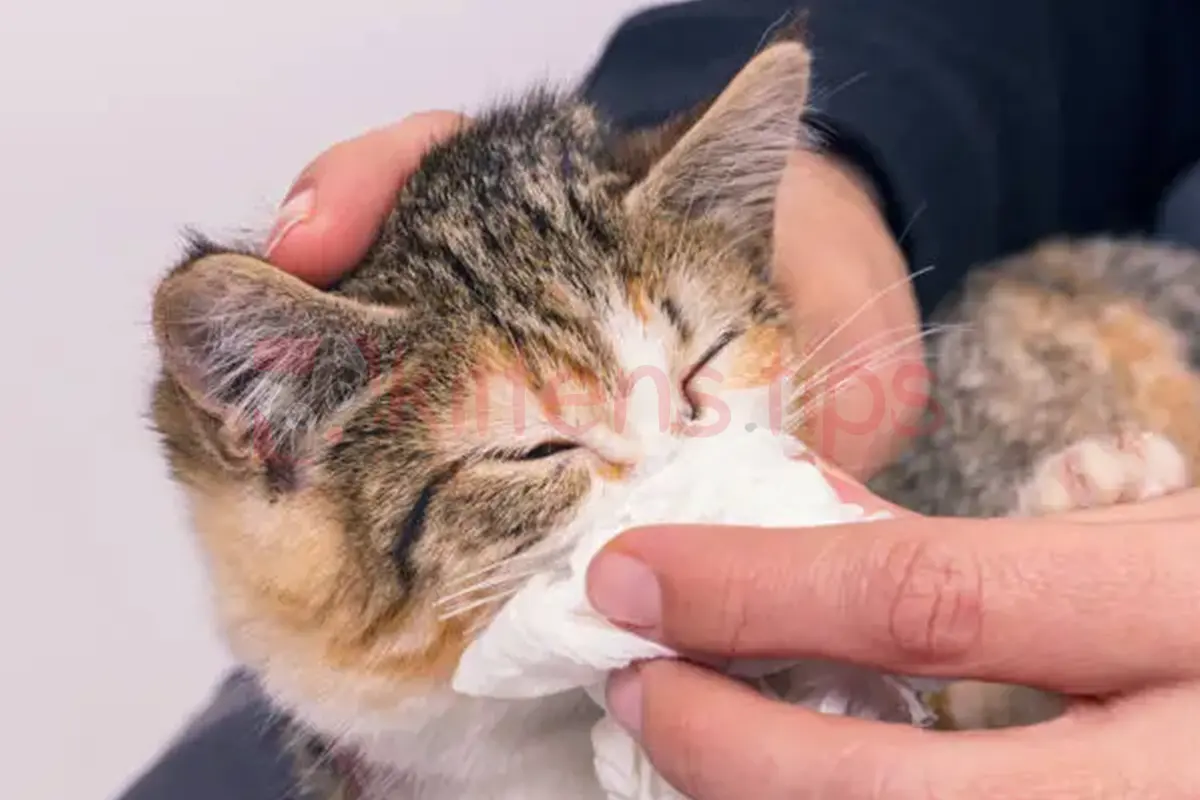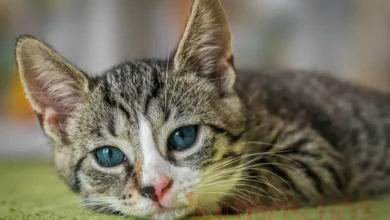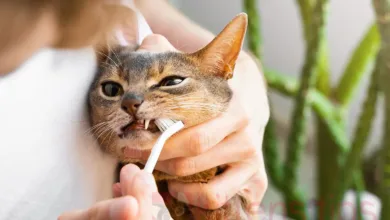
The cat is sneezing. What conditions could this manifestation hide?
The cat is sneezing for various reasons, much like humans. Sneezing in cats can be caused by allergies, respiratory infections, nasal obstructions, or even irritation from dust or chemicals. Typically, sneezing is a minor symptom and not a cause for concern. However, if the cat exhibits other severe symptoms such as excessive nasal discharge, persistent coughing, difficulty breathing, or refusal to eat, it would be advisable to consult a veterinarian for a proper assessment and appropriate treatment.
Let’s delve a bit more into why cats sneeze and what we can do to help.
Table of Contents
The cat is sneezing. What are the causes of sneezing?
As mentioned earlier, cats sneeze for various reasons, and simple sneezing without the presence of discharges can be due to mechanical factors or allergens. Mechanical factors include dust, pollen, cigarette smoke, or exhaust fumes. Air pollution and strong odors, such as potent perfumes or detergents, can also trigger excessive sneezing in cats. Typically, sneezing caused by these irritants subsides with their removal.
Sneezing accompanied by a reduced appetite may indicate an infection in the mouth, nose, or teeth. In outdoor cats, irritants like plants, worms, insects, or soil particles can irritate the nasal mucosa, and sneezing helps clear the nose and prevents foreign bodies from entering the respiratory system. In some cases, foreign bodies cannot be expelled through sneezing alone, and the cat may require veterinary assistance to remove them.
Sneezing accompanied by discharges, especially liquid and watery ones, may indicate a respiratory tract condition such as a cold. Other associated symptoms may include weakness, apathy, decreased appetite, or coughing. Abundant, viscous, and dark-colored discharges are a cause for concern and require veterinary consultation, as they may indicate a severe infection. Rhinitis, in particular, can be dangerous and needs prompt treatment. Untreated, rhinitis can lead to serious conditions affecting the lungs, eyes, skin, and even endanger the cat’s life.
For indoor cats, sneezing can be caused by the accumulation of dust under furniture or in carpets. It is essential to maintain proper hygiene in these areas to reduce exposure to irritants and prevent frequent sneezing.
In conclusion, sneezing in cats can have various causes and may be a minor symptom or a sign of a more serious condition. It is crucial to observe other associated symptoms and take appropriate action, seeking veterinary help when necessary to ensure the well-being and health of our beloved cats.
How can we assist a cat when it begins to sneeze?
For outdoor cats, a temporary solution is to move them indoors until the sneezing symptoms subside. This will provide them with a safer environment and protect them from external irritants.
If you notice that the cat is sneezing frequently, it’s crucial to identify the triggers. Reduce exposure to strong odors, thoroughly rinse floors after using cleaning solutions, and avoid exposure to chemicals. Additionally, limit the cat’s time in polluted air and avoid smoking in its presence, as this can reduce the risk of respiratory conditions and even cancer.
Related: Ataxia in Cats. Causes, Symptoms, and Treatmen
When the cat is sneezing and has discharges, do not postpone applying appropriate treatment. Ensure a warm environment and provide meals at room temperature, avoiding cold food from the refrigerator. Rest and tranquility will contribute to its recovery. If symptoms persist or worsen within 24 hours, veterinary consultation is necessary, and the veterinarian will recommend the appropriate treatment. If it seems like the cat is experiencing a cold, you can try measuring its rectal temperature with a thermometer, with great care. If the temperature exceeds the normal level (approximately 40 degrees Celsius), it’s important to urgently consult a veterinarian.
If the cat has not had previous episodes of sneezing and suddenly starts sneezing frequently, this could be an alarm signal that something has changed in its surroundings or health condition. There are many environmental factors that can cause sneezing in outdoor-living cats.


